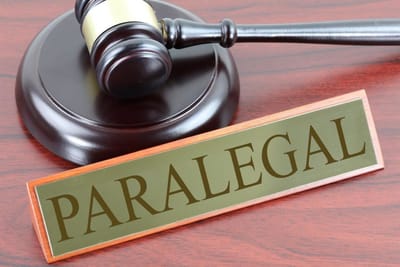What is a Paralegal?
A paralegal is a professional who has the required education and experience to provide legal services to the general public, but they are not lawyers. In Ontario, paralegals are licensed by the Law Society of Ontario and are regulated as officers of the court. Since 2007, the Law Society has had governing jurisdiction over approximately 9,000 licensed paralegals in the province.
What are paralegals authorized to do?
Licensed paralegals are authorized to represent individuals in the following areas:
- Small Claims Court litigation (up-to $35,000)
- Traffic and other offences under the Provincial Offences Act, which are heard in the Ontario Court of Justice
- Statutory Accident Benefits (SAB) claims covered under the Insurance Act, for minor injuries due to motor vehicle accidents
- Hearings before administrative tribunals and boards (including the Landlord and Tenant Board, Workplace Safety and Insurance Board, the Financial Services Commission of Ontario, Social Benefits Tribunal, Human Rights Tribunal of Ontario, and the Immigration and Refugee Board)
- Certain criminal law matters including:
- Assault
- Criminal harassment
- Mischief
- Theft under $5,000
- Fraud
- Breaches of court orders
- Four criminal driving offences: Dangerous Driving, Failure to Stop after Accident, Flight from a Police Officer, and Operation while Prohibited
Previously, paralegals were restricted to representing individuals on criminal summary conviction offences where the maximum penalty did not exceed six months’ imprisonment or a $5,000 fine. Changes to the Criminal Code amended the summary conviction punishment of six months to two years less a day for most less serious charges. Because of this, the Law Society has authorized paralegals to represent individuals in summary conviction cases with a maximum penalty of greater than six month’s imprisonment. More information and a full list of permitted Criminal Code conviction offences where a regulated paralegal can represent an individual is available from the Law Society.
When representing a client in any of the authorized areas, a licensed paralegal can provide the following legal services:
- Give legal advice concerning legal interests, rights or responsibilities with respect to a proceeding or the subject matter of a proceeding,
- Draft or assist with drafting documents for use in a proceeding, and
- Negotiate on behalf of a person who is a party to a proceeding.
Paralegals are not permitted to appear in Family Court. Other than under the supervision of a lawyer, paralegals are also not allowed to provide legal services that only a lawyer may provide, such as drafting wills, handling real estate transactions, and representing clients in serious criminal matters.
